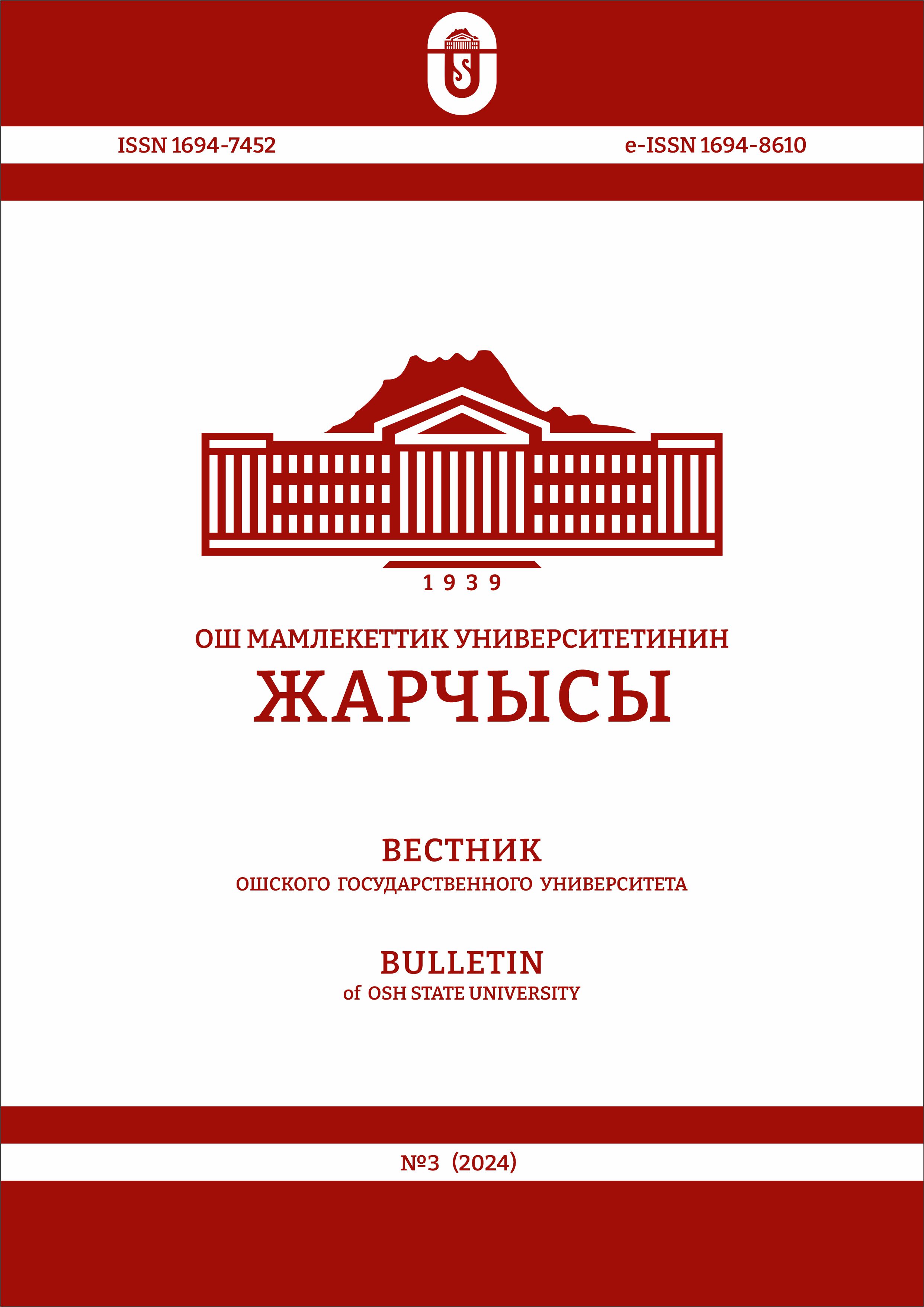WORKING WITH THE MONOLOGICAL FORM OF SPEECH IN THE PROCESS OF LEARNING THE EPIC “MANAS”
DOI:
https://doi.org/10.52754/16948610_2024_3_10Keywords:
monologue, oral speech, types of speech, dialogue, report, epic text, pitching, modern skillsAbstract
The article presents methodical methods of working with the monologue type of oral speech in the material of the "Manas" epic. A monologue speech formed on the basis of dialogic speech is a complex form of speech that requires the student to have deep knowledge of the text of the epic, knowledge and skills of oral speech. The author focused on the reproductive form of monologue speech, the productive form after retelling - the report. He analyzed the informational, research, problematic and controversial types of the report and gave examples of the content of the epic. In particular, the difficult task of a teacher, such as teaching to consider various positions on a controversial issue, realistically analyze their strengths and weaknesses, and develop one's own point of view, is clearly visible in the preparation of a problematic type of report. Basically, it is necessary for the student to master the artistic means of expression that make up the richness of the Kyrgyz language of the epos, and to be able to use them in a form of work that is in line with the requirements of the moment. The author noted that the method of training students on the text of the epos by preparing reports forms the modern skill of convincing and influencing the listeners with their thoughts and ideas.
References
Терминдердин түшүндүрмө сөздүгү: Мектеп окуучулары үчүн. Түз.:Ж.Шериев, А.Муратов.-Б.:КЭнин Башкы ред.,1994.-160 б.
Абдиева Ж.К. “Манас” эпосу - элдик педагогика жана билим берүүнүн булагы катары // Вестник Ошского государственного университета. 2021. Vol. 2, No. 3. бб. 114-122. DOI: 10.52754/16947452_2021_2_3_114. EDN: RSQEKZ. DOI: https://doi.org/10.52754/16947452_2021_2_3_114
Ашым Жакыпбек. Теңири Манас.-Б.,1995.- 298 б.
Ахмедова Х. Развитие устной речи как необходимое условие работы над речевой деятельностью обучающихся. М., 2021. -328 с.
Байгазиев С.О.Улутубуздун уӊгулуу нарктары.Б., “Алтын тамга”,2023.- 387 б.
Кубанычбек кызы А. “Манас” эпосунда көчмөн турмуштун сүрөттөлүшү // Ош мамлекеттик университетинин Жарчысы. Филология. 2023. No. 2(2). бб. 41-48. DOI: 10.52754/16948874_2023_2(2)_5. EDN: UIVPTC. DOI: https://doi.org/10.52754/16948874_2023_2(2)_5
Кыргыз өзөгү. Түз.Бакчиев Т.ж.б. Б., 2012. -212 б.
Ладыженская Т.А. Живое слово. Устная речь как средство и предмет обучения. М., “Просвешение”. 1986.
Токтогазиев Т.Ш. Айкөл Манас – тарыхый инсан. Алтайдагы, Ала – Тоодогу, Бээжиндеги издер. Б., 2013. -358 б.
Улуу “Манас” жана анын фальсификаторлору.Түз. С.Алахан ж.б Б., 2013. – 358 б.
Фрумкин К.Г. Глобальные изменения в мышлении и судьба текстовой культуры // Ineternum - 2010-Т1.-с. 26 -36.
Юсупова Р.О., Кочкорова Д.А. “Манас” эпосундагы кыймыл, мейкиндик жана убакыттын интерпретацияланышы // Ош мамлекеттик университетинин Жарчысы. Философия. Социология. Политология. 2023. No. 1(1). бб. 33-41. DOI: 10.52754/16948823_2023_1(1)_5. EDN: FZOACK. DOI: https://doi.org/10.52754/16948823_2023_1(1)_5
Downloads
Published
How to Cite
Issue
Section
License
Copyright (c) 2024 The Author(s)

This work is licensed under a Creative Commons Attribution-NonCommercial 4.0 International License.



